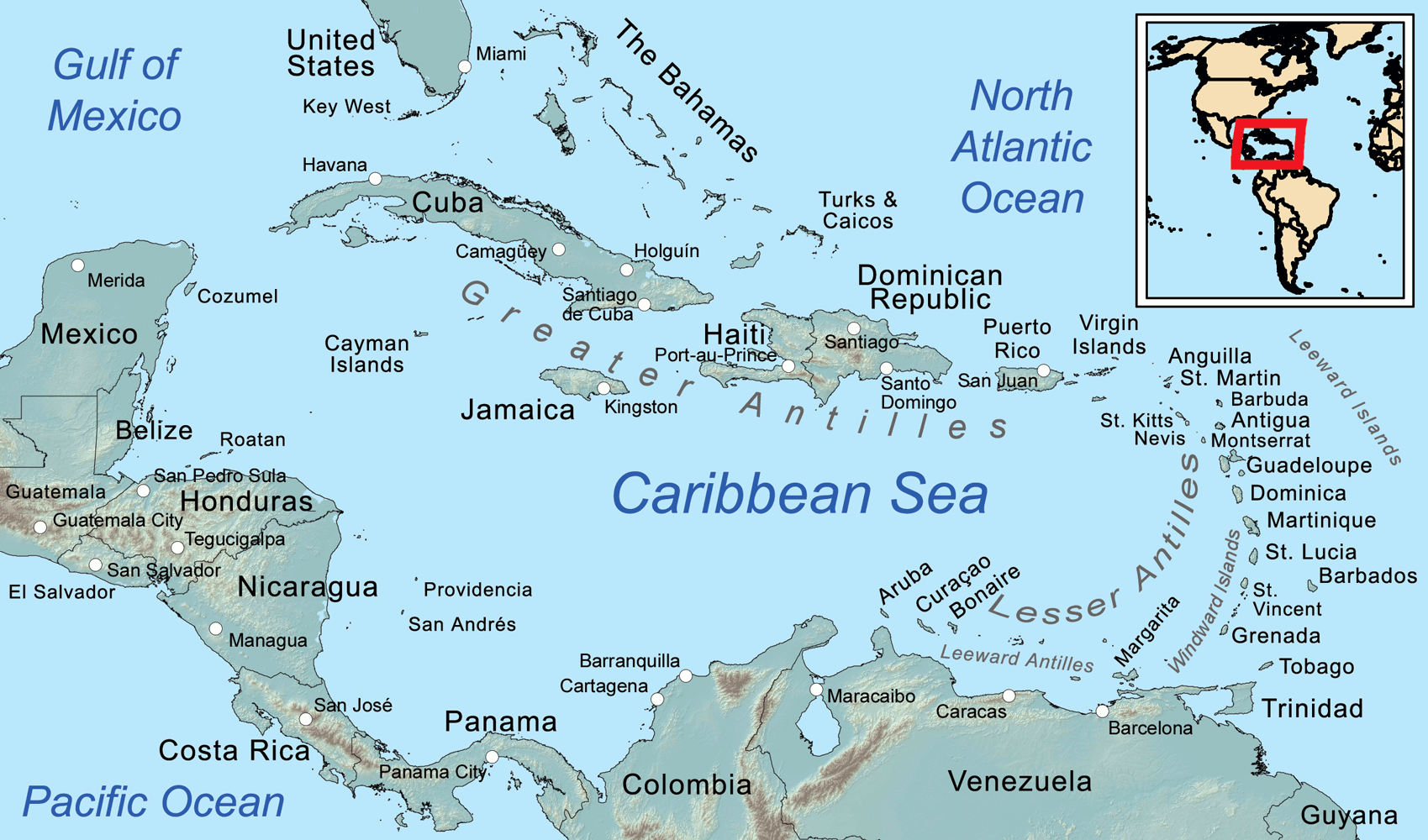
SCENES team
Subproject A
Prof. dr. Roland Klees, Dr. Riccardo Riva, Dr. Cornelis Snobbe, Dr. Caroline Catsman (TUD)
Subproject B
Dr. Marcel Zijlema
Subproject C
Prof. dr. Peter Herman (Deltares)
Contact information
Prof. dr. ir. Henk A. Dijkstra
Institute for Marine and
Atmospheric research Utrecht
Department of Physics and Astronomy
Utrecht University
Princetonplein 5, 3584 CC Utrecht,
The Netherlands
Phone: +31-30-2535441
Fax: +31-30-2543163
email: H.A.Dijkstra@uu.nl
Funding
NWO-Caribbean
(2015 - 2020)PIs
Prof. dr. ir. Henk A. Dijkstra(Subproject A)
Prof. dr. Julie Pietrzak (TUD) (Subproject B)
Prof. dr. Tjeerd Bouma (NIOZ) (Subproject C)
PhDs and Postdocs
Rene van Westen MSc (UU)
(Subproject A)Dr. Adam Candy (TUD)
(Subproject B)Rebecca James MSc (NIOZ)
(Subproject C)
Information
Recent analyses from altimetry and tide gauges has indicated that the basin-wide sea-level trend in the Caribbean Sea for the period 1993-2010 was 1.7 ± 1.3 mm/year, with substantial spatial variability. Local sea-level trends are most important for shallow ecosystems because they have to keep up with the large relative sea-level change and associated coastal wave statistics. For many Caribbean islands, the shallow bays and lagoons consist of calcic sediments that are maintained primarily by calcifying algae. To determine the effects of climate change on the coastal ecosystems in the Caribbean, a comprehensive multidisciplinary project is formulated involving analysis of regional ocean observations and global high-resolution ocean modelling (sub-project A), high-resolution biogeomorphological modelling (subproject B) and field work on sediment dynamics, wave climate, temperature and pH dynamics (subproject C). In addition, experiments will be performed at the Caribbean Netherlands Science Institute (CNSI) on how key species respond to multiple interacting stresses in a multispecies situation and at a diversity of temporal scales (subproject C). Using this approach, we will eventually be able to link global climate change, regional ocean changes, local changes in the statistics in temperature, pH and wave impact in coastal bays and lagoons that will finally be translated into biogeomorphic response, including ecosystem health and sediment production rates.
Activities and News
SCENES meeting 4, Utrecht University, 24/11/2016, 10:00-12:30. Agenda.
Bonaire Conference, Caribbean Dynamics and Ecosystems changes: Quo Vadis, October 17-22, Kralendijk.